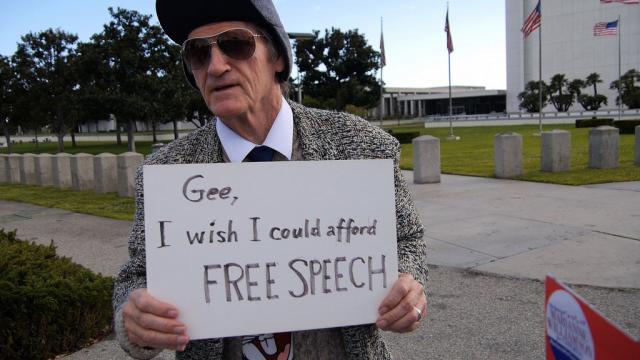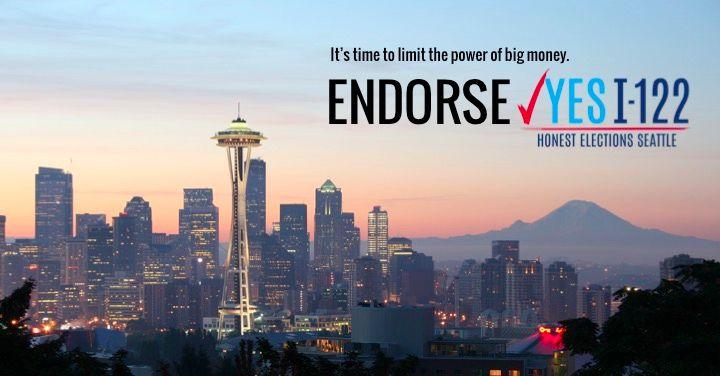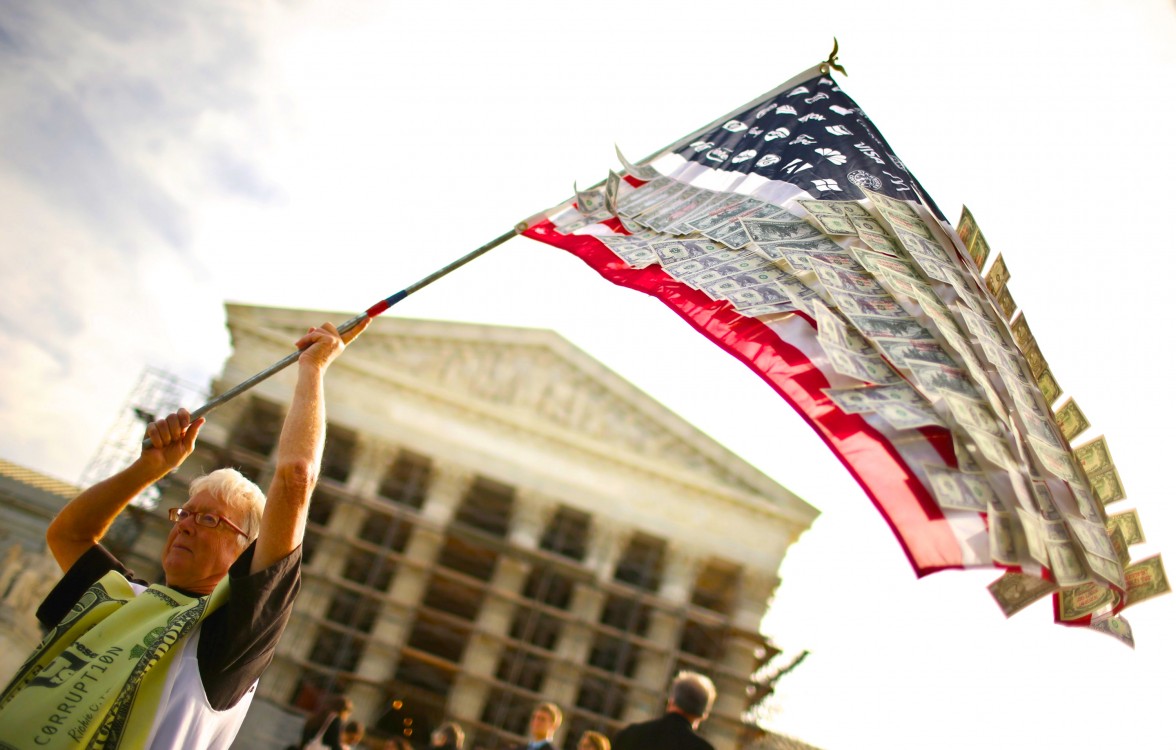
Running for re-election, Seattle City Council Member Mike O’Brien knows firsthand that the campaign chase for donors is often at odds with the hunt for votes. “Most candidates spend about 10-15 hours a week on the phone dialing for dollars,” he estimates. “You start by looking up the people who can write the big checks. Often they aren’t even in your district and can’t even vote for you but they have the capacity to finance your election.”
In the 2013 election two-thirds of all of the money raised by Seattle candidates came from just 0.3 percent of the city’s residents, according to a report by the Sightline Institute, a nonprofit think tank. This makes for heavy competition as dozens of candidates try to appeal to a very narrow slice of the electorate.
“Of course everyone else is calling those same people so you’re fighting with other candidates whether they’re in your race or not, to convince the donors that you’re their guy and they should write you a check,” O’Brien said.
On Nov. 3, Seattle voters have an opportunity to radically change how candidates raise money. Ballot initiative I-122, if passed, would create a public financing model in which every Seattle resident would receive vouchers worth $100 to give to the candidate(s) of their choice. The initiative’s backers say the measure would bring more diversity to the city’s pool of candidates, allowing those without access to big-money donors to compete.
And by turning registered voters into sought-after donors, proponents say candidates will spend more time listening to the voices and concerns of ordinary citizens.
Most campaign financing programs work by giving candidates access to a pool of public funds. Many encourage candidates to raise small-donor donations by matching those amounts with public funds. Seattle’s proposal is the first of its kind to give that public money directly to voters.
“When you do a matching funds program voters feel like they don’t have a choice over who gets that money,” said Heather Weiner, campaign director for Honest Elections Seattle, the group behind the initiative. “Here, the voters get that public money in their hands and can sign it over to a candidate.”
While the initiative wouldn’t eliminate the need for candidates to raise money, proponents say the makeup of the donors would be radically altered. “You would still have to fundraise,” said O’Brien, who supports the measure, “but when you get to spend the whole day talking to voters instead of big donors you’re talking to the 100 percent, not just the 1 percent. Your message doesn't get honed over time to what the 1 percent wants from you.”
Opponents of the ballot measure argue that while it’s well-intentioned, the voucher program could actually make it harder to unseat incumbents. Robert Mahorn, former Chair of the Seattle Ethics and Elections Commission, notes that the vouchers would be sent out to voters in January, 10 months before election day. He is concerned that few challengers at that stage would have the organizational muscle to compete for those early dollars and notes that the filing deadline to enter the race isn’t until May.
“This [initiative] would cause a January dash for voucher dollars,” he said. “If you’re an incumbent it’s pretty easy to come to voters and ask for a voucher when you don’t have an opponent yet.”
Weiner counters that incumbents are already starting with a huge financial advantage under the current system, pointing out that the current City Council president began 2015 with a $150,000 war chest. “I-122 levels the playing field, giving grassroots candidates a fighting chance,” she said, and is confident that the most viable challengers will be able to compete for those early dollars.
Weiner also dismisses criticism that with a $3 million dollar voucher budget the initiative doesn’t have enough funding to provide vouchers for each of Seattle’s 415,000 registered voters. This could result in people submitting vouchers only to have them go unused if they were received after funds had run out.
“It's very unlikely we'll ever get 100 percent participation,” Weiner said, “but we hope that our local political donor class will go up from [the current] 1.5 percent of city residents to 10 or 15 percent in the next 10 years.”
Seattle’s move to limit the influence of wealthy donors comes five years after the Supreme Court’s Citizens United decision and subsequent federal court rulings allowed unlimited spending by outside groups. Since then the flow of big donations to state and citywide campaigns has never been greater.
“Money in politics has obviously been an ongoing issue for quite some time,” said Brad Anderson, a former Iowa state director for the Obama campaign who now promotes campaign finance transparency as a founder of the nonpartisan Iowa Pays The Price. “But in the last election cycle it jumped the shark,” he said, noting that Iowa saw $112 million in campaign spending in its 2014 congressional races, an increase of more than 400 percent from 2010.
While Seattle’s voucher proposal may be unique, there’s a growing trend at the state and local levels to explore alternatives to big money in politics. Thirteen states (PDF) currently have some form of public financing for candidates who agree to fundraising restrictions in exchange for public money. Often held as a model by reform advocates, New York City has a matching funds program in which every dollar a candidate raises is matched with public funds at a 6-to-1 ratio.
Connecticut’s public funding program, which gives fixed grants to qualifying candidates, was used by 80 percent of the state’s current legislature, according to Michael Brandi, the head of the State Elections Enforcement Commission. Citing the program’s ban on publicly financed candidates receiving donations from state contractors he said, “We’ve seen a tremendous change in the discourse and debate that goes on at the legislature.” Maine has offered a public financing option since 1996 and can also claim a majority of its most recently elected officials as having run on public money.
Proponents see these so-called clean elections programs as a tool to counter the influence wealthy individuals and special interest groups have on elected officials. “I want to know that the people we elect to represent us...are doing just that — representing us,” Sharon Peralta, a Maine small-business owner wrote in support of an upcoming ballot initiative to further strengthen that state’s clean elections program.
There have been stinging defeats like the Supreme Court’s 2011 rejection of a voter-approved Arizona law that sought to create a level playing field by directly tying a candidate’s public funds to the amount spent by and on behalf of their privately financed opponent. Since that ruling there has been a dramatic reduction in the number of Arizona candidates opting for public financing.
In 2014 just 16 percent of the state's winning candidates ran under the program according to an analysis by campaign reform nonprofit Every Voice Center. And in Connecticut’s last election cycle there were allegations that a candidate circumvented fundraising rules by routing over-the-limit donations through the state’s Democratic party committee.
Some reform advocates argue that state and local efforts can do little to curb the influence of super PACs and other big-money outside groups. “In a post-Citizens United era outside expenditures can effectively dwarf a public funding system,” said John Bonifaz, president of Free Speech for People, a campaign reform advocacy group. “It’s a mistake to suggest that public funding alone will address the problem of big money in politics.” His group seeks a Constitutional amendment that would overturn the Citizens United ruling.
Chris Johnson, a state senator from Maine who was elected using public financing, agrees that more needs to be done in combating the influence of outside money. But he finds that even a less than perfect system has very tangible benefits. “I don’t have any strings attached,” he said. “I feel very comfortable and not conflicted at all in making decisions based upon how it impacts the people in my district rather than someone who gave money to the campaign. That’s really important.”
3 WAYS TO SHOW YOUR SUPPORT
- Log in to post comments















